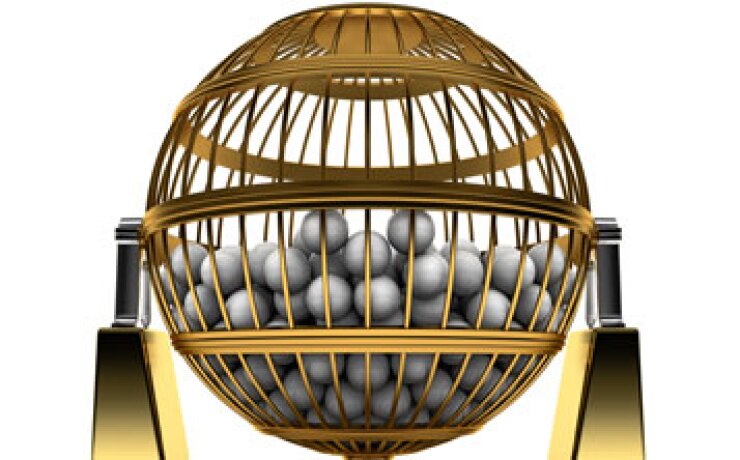
Pennsylvania Gov. Tom Corbett has abandoned his pursuit of a $34 billion state lottery privatization contract with Britain's Camelot Global LLC.
In a statement on Monday, Corbett said his administration "will continue to fight for the best interests of the older Pennsylvanians by looking for other ways to grow revenue."
Pennsylvania, which began its lottery in 1971, is the only state that earmarks all lottery receipts to programs for the elderly.
Last February, three months after Republican Corbett announced the 20-year contract with the company that operates Britain's national lottery, state attorney general Kathleen Kane, a Democrat, voided the contract as unconstitutional. She said adding games such as Keno without the approval of the state legislature contradicted state lottery laws.
The Ontario Teachers' Pension Plan, one of Canada's largest pension funds, has owned Camelot since 2010.
"As we move forward, we will take what we've learned to make our successful lottery even better -- expanding the player and retailer base, improving player loyalty, and implementing strategies that will grow our lottery, responsibly and efficiently," Corbett said in a statement.
The lottery initiative became a subject of intense partisan bickering at the state capitol. Democrats, who threatened a lawsuit over the contract last winter, said Corbett moved too quickly on the plan, and called him overzealous about privatizations in general.
Corbett has also attempted to privatize state-run liquor stores, an initiative that stalled in the legislature.
"I am happy that the governor has dropped this foolish idea of privatizing the lottery. The current system works and has raised billions of dollars that benefit the Commonwealth and its seniors," said Brad Koplinski, a Harrisburg city councilman and Democratic candidate for lieutenant governor in 2014.
"Gov. Corbett needs to focus on creating jobs and helping Pennsylvanians, as opposed to coming up with get-rich-quick schemes that will harm our state," he said.
"The governor pulled away from privatization of the Pennsylvania lottery because of some of the roadblocks in securing privatization," said David Fiorenza, a Villanova School of Business professor and former chief financial officer of Radnor Township, Pa. "As seen with his attempts to privatize [the Liquor Control Board,] the governor continues his move to the center of right as he tries to gain support with the public sector unions.
"The governor will continue to expand gambling in the commonwealth as an easy fix to the revenue stream of the General Fund, as casinos have become acceptable in Pennsylvania. Corbett will continue the expansion of gambling in the tradition of Gov. [Ed] Rendell]."
Corbett's administration considered resubmitting the lottery contract, although revenue secretary Dan Meuser said last year that downsizing or otherwise tweaking it could have triggered separate legal challenges related to the bid process.
In November 2012, seven months after the state began a procurement process, it chose Camelot. But Kane, who took office last January, voided the contract after promising to scrutinize it "for form and legality."
Kane's office declined comment Monday.
Moody's Investors Service rates Pennsylvania's general obligation bonds Aa2, while Fitch Ratings and Standard & Poor's assign AA ratings.





